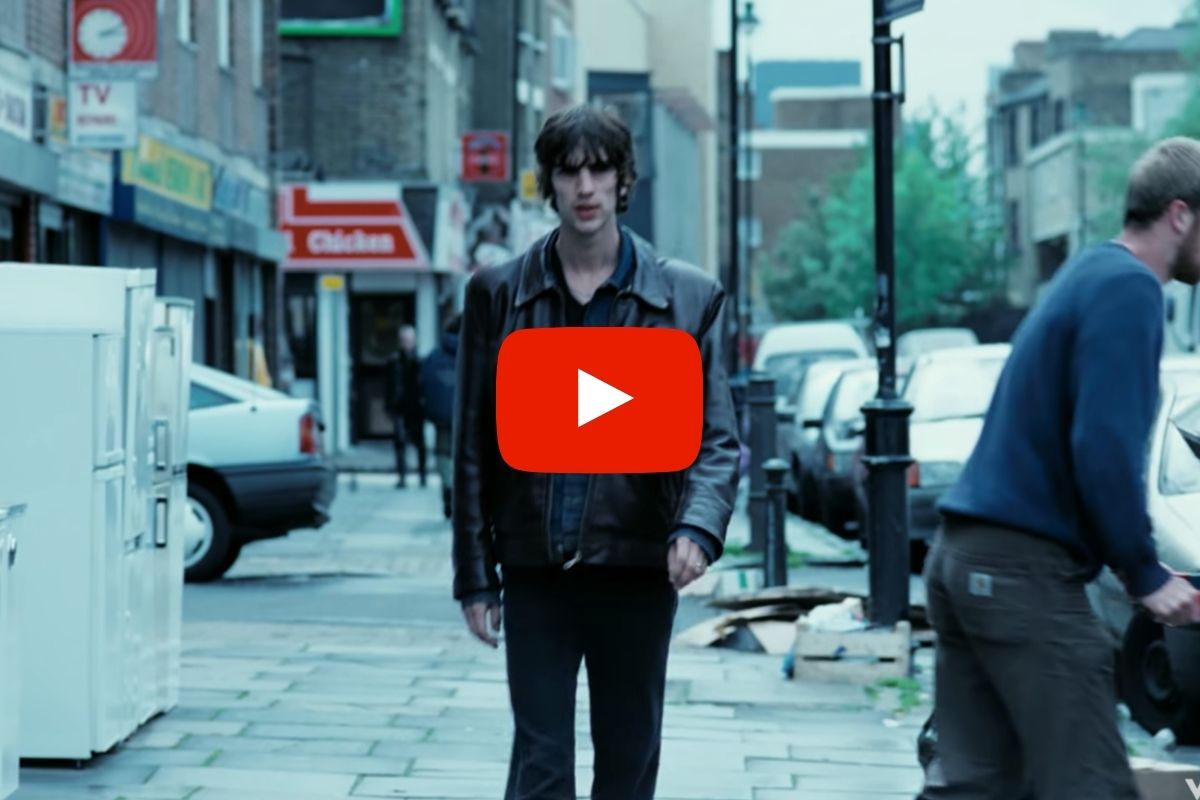You’re probably familiar with The Verve’s most popular song, “Bitter Sweet Symphony.” The 1997 classic is a deeply atmospheric and orchestral ode to the daily grind. But the full story behind this song’s rise to indie rock fame actually reflects the dark lyrics… all too well. “Bitter Sweet Symphony” opens with the lines, “Cause it’s a bittersweet symphony this life / Trying to make ends meet, you’re a slave to the money then you die.” This pessimistic (or, realist) outlook was informed by Verve’s frontman Richard Ashcroft’s experiences growing up.
Videos by Rare
Ashcroft’s father died suddenly of a brain hemorrhage when the singer was only eleven years old. Opening up about the tragedy to Select magazine, Ashcroft said his father, who was an office clerk, “worked nine to five and got nowhere. I immediately realized that wasn’t the life for me.” And so “Bitter Sweet Symphony” takes a different approach to the chore of survival.
“Bitter Sweet Symphony”
The lyrics describe the zombie-like state of moving through every day, a mindless act which is mirrored in the music video (see above): Ashcroft walks down a crowded London street on a typically overcast day, bumping into passersby. Nobody seems to see him until it’s too late. And even though all that sounds (very) depressing, the illuminating, loud music behind the words hint at something like enlightenment. First, it’s the strings that mimic a walking beat; then Ashcroft’s vocals come in. After that first verse, the symphony builds. Instruments begin to layer: there’s sonic twangs, recurring echoes, and an overall reverberation that never lets up – even as Aschcroft’s narrator insists that “I can’t, I can’t change, I can’t change… no, no, no, no, no, no, no.”
The second verse begins as a prayer, “Well I never pray / But tonight I’m on my knees, yeah,” and casts the rest of the song in a hopeful light. The call is not religious per se, but it’s clear that Ashcroft does not want to believe in the pessimism he’s spitting. He wants help. But as this solo man continues down the harsh city streets, the only support he’ll find is in song. In that big, beautiful sound that seems to follow him. With such a relatable conflict, it’s no wonder that “Bitter Sweet Symphony” became such a hit. The English alt-rock band was otherwise unknown when they dropped Urban Hymns in 1997, the opening track of which was “Bitter Sweet Symphony.” So, it might surprise you to learn that The Verve hardly ever made a dime off the song. What exactly happened after the release of Urban Hymns to turn the song’s capitalist anxiety into a self-fulfilling prophecy? And why were Mick Jaggers and Keith Richards involved?
Legal Battle with The Rolling Stones
The “Bitter Sweet Symphony” soundscape borrows a six-second sample from The Andrew Oldham Orchestra’s instrumental cover of the Rolling Stones 1965 song, “The Last Time.” (This sample happens to be the key opening strings.) When recording, The Verve sought, and gained, permission from The Andrew Oldham Orchestra for fair use of their orchestral recording – but not the Rolling Stones. The Verve additionally did obtain rights to the six notes from the Rolling Stones’ label, Decca Records. And thought that would be enough to release their future hit single. They were wrong.
Having failed to get permission from cut-throat Rolling Stones manager Allen Klein, who owns copyrights to all the band’s work pre-1970, The Verve faced an insurmountable legal challenge. They entered a lawsuit with ABKCO Records which led to a dismal settlement. Klein refused anything short of 100% of the song’s publishing rights. Ashcroft, who individually wrote the track, walked away from the table with $1,000 flat. Having fully relinquished his rights to Klein and ABKCO Records, Mick Jaggers and Keith Richards were then credited as the “Bitter Sweet Symphony” songwriters.
At the time, Richard Ashcroft noted (accurately) that “Bitter Sweet Symphony” is the best song Jagger and Richards have written in 20 years.” The last time a Jaggers/Richard song had topped the charts was in 1971 with “Brown Sugar.” The resounding and continuing mainstream success of “Bitter Sweet Symphony” became a miserable phenomenon for Ashcroft, like salt in a wound. In addition to nonstop radio play, “Bitter Sweet Symphony” even became, inexplicably, a theme song for both the FIFA World Cup and the NFL’s The Seattle Seahawks. And perhaps most egregiously, “Bitter Sweet Symphony” was used in Nike commercials for their prominent 1998 “I Can” campaign. The Verve has had to watch their greatest hit get cashed in on, again and again. But even worse, the commercial uses of “Bitter Sweet Symphony” are completely antithetical to the song’s nuanced message.
A Bittersweet Ending?
In a surprise move in 2019, Mick Jagger and Keith Richards gave “Bitter Sweet Symphony” back to The Verve. All forthcoming royalties would be directed to Richard Ashcroft. Ashcroft released this emotional statement: “It gives me great pleasure to announce as of last month Mick Jagger and Keith Richards agreed to give me their share of the song Bitter Sweet Symphony. This remarkable and life-affirming turn of events was made possible by a kind and magnanimous gesture from Mick and Keith, who have also agreed that they are happy for the writing credit to exclude their names and all their royalties derived from the song they will now pass to me. I would like to thank the main players in this, my management Steve Kutner and John Kennedy, the Stones manager Joyce Smyth and Jody Klein (for actually taking the call) lastly a huge unreserved heartfelt thanks and respect to Mick and Keith. Music is power.”
Shortly after, in May of 2019, Ashcroft was awarded the Ivor Novello Award for Outstanding Contribution to British Music. Still celebrating his win with the Stones, he said, “As of last month, Mick Jagger and Keith Richards signed over all their publishing for “Bitter Sweet Symphony,” which was a truly kind and magnanimous thing for them to do. I never had a personal beef with the Stones. They’ve always been the greatest rock and roll band in the world. It’s been a fantastic development. It’s life-affirming in a way.”
In the end, it seems that royalties were in fact the most “life-affirming” thing of all to Ashcroft, who created a musical masterpiece. While the lyrics of “Bitter Sweet Symphony” abhor the notion, Ashcroft wasn’t lying when he said, “you’re a slave to money.” (He can’t change, he can’t change, he can’t change…)



